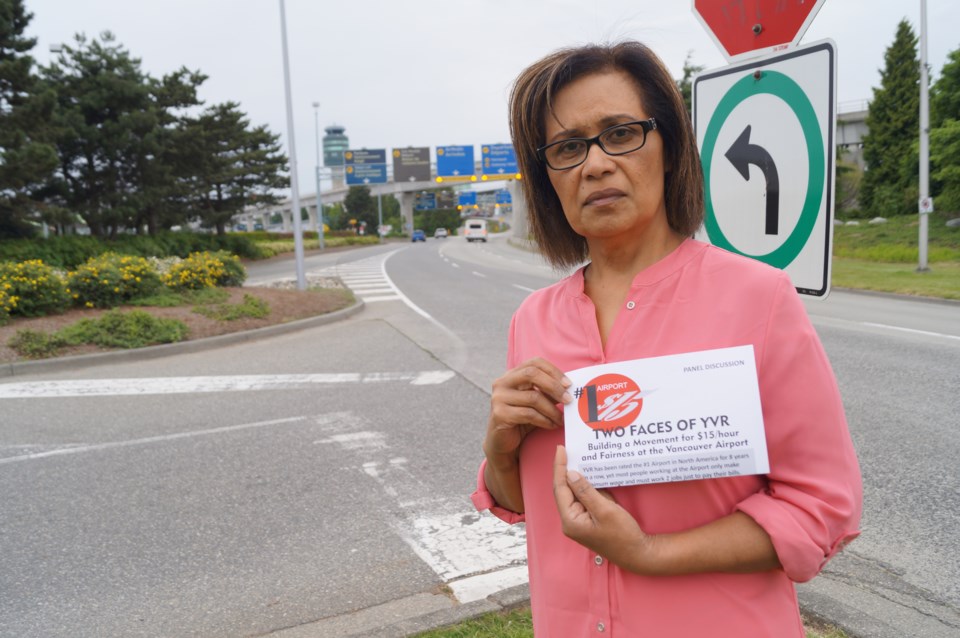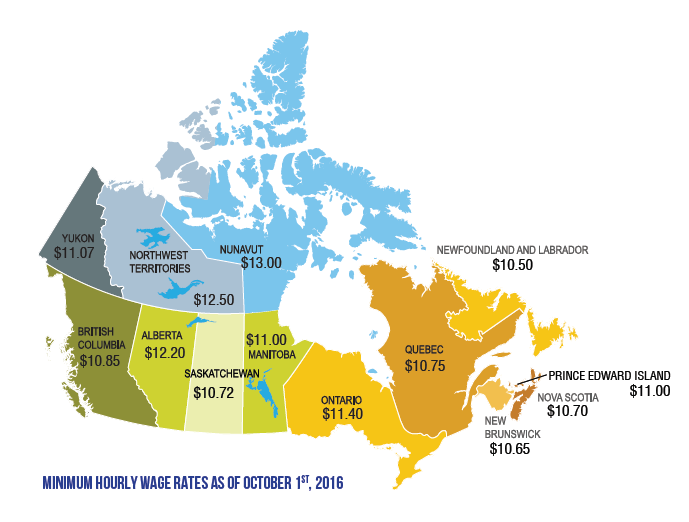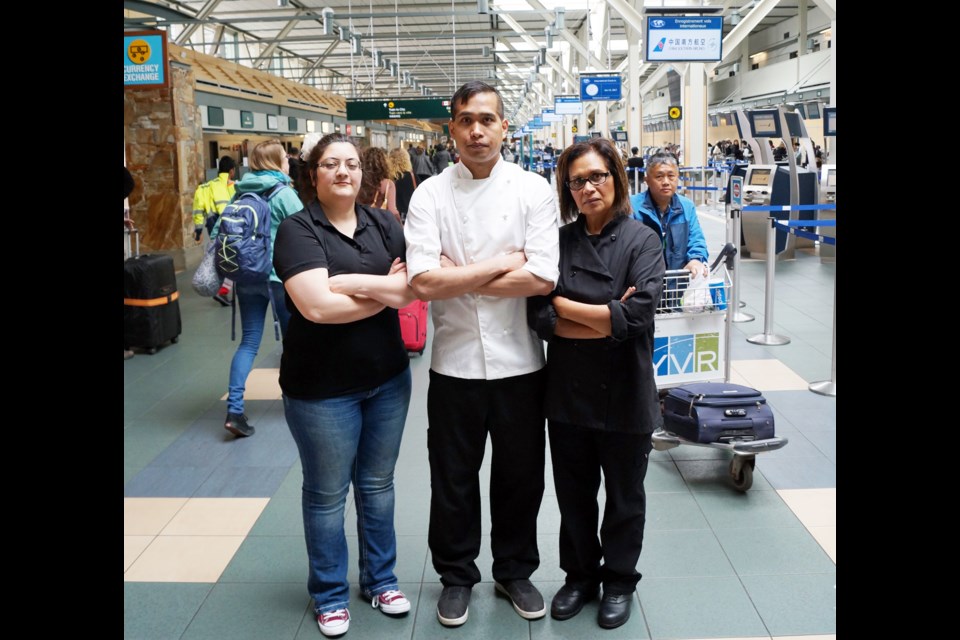Fipe Wong, 64, is an HMSHost employee who has worked in the food service business at the airport for 21 years. She makes $16.50 per hour and maintains another part-time job, regularly working about 55 hours each week, to pay the bills.
According to Wong, a story such as hers is common, if not the norm, at Vancouver International Airport (YVR), where many of the employees who work for contractors are subject to low wages and precarious employment.
It’s something Wong and her union, UNITE HERE Local 40, want to change. As such, they have made YVR a local battleground for minimum wage reform — a debate swirling both in B.C. and, more recently, Ontario.
“It’s very expensive to live here. I’ve seen for 21 years how expensive it is to live in Richmond,” said Wong, a longtime Richmondite who immigrated here from Fiji.
“I’m exhausted all the time because I have to work two jobs. If I could have one job with a decent wage I could contribute to society; do some volunteering; do something else in Richmond. I can’t do that because I’m running from one job to another to pay the bills. Frankly, I don’t have a life, I just have to work. For the majority of my co-workers, that’s their life,” she said.
Admittedly, she notes her working conditions are not as bad as others. She is unionized and has benefits, after all.
Wong is also concerned about the estimated thousands of employees who work at YVR with undocumented overtime, no breaks and have to worry about job retention.
“Their situation is worse than ours,” said Wong.
The union is asking the Vancouver Airport Authority (VAA) to voluntarily institute a mandatory minimum wage for all contracted employees at the airport.
Such a move is not without precedence.
At San Francisco International Airport (SFO), living wages and benefits beyond the state-sanctioned minimum wage, were introduced in 1999. In 2013, John Martin, SFO airport director, wrote a letter published in the New York Times, noting the program’s success.
“Airport safety is not well served when exhausted employees have to work two jobs just to make ends meet,” said Martin.
The airport has seen more wage increases since then (to $13.84 for employees).

Seattle-Tacoma International Airport (Sea-Tac) introduced a $15 mandatory minimum wage and what has been described and reported as fair labour standards, in 2015.
Meanwhile, Los Angeles International Airport has a base wage of $11.27 for employees with benefits, or $16.18 for those without them. Additionally, there are worker retention policies in place.
Wong said worker retention policies are important because the airport authority frequently changes contractors, and in the process people lose their jobs and labour standards are weakened in a race to offer the airport the cheapest services and products.
Her union’s request is not presently being considered by the authority.
“We are not currently considering implementing a mandatory wage level for our service contractors. It is to everyone’s benefit to have YVR service providers supported by stable and engaged workforces. Many of the businesses that operate on Sea Island have unionized employees and we respect the right of the unions and employers to determine their wage rates,” said Michele Mawhinney, VAA’s vice president, Human Resources and Supply Management, via email to the News.
As to the U.S. airports doing the opposite, an airport spokesperson stated that American airports have a different governance model, allowing them to mandate wage rates, whereas VAA is a private not-for-profit organization.
“The provincial government is the body responsible for setting the minimum wage rates in British Columbia,” stated the spokesperson.
However, going above and beyond provincial guidelines, the City of Vancouver became a “living wage” employer this month by reportedly requiring most contractors to pay employees at least $20.64. The City of Richmond, notably, is mulling such a policy, after city council was presented with the idea by anti-poverty groups this year.
Meanwhile, a BC NDP government has pledged to increase the minimum hourly wage to $15 by 2019, which would fall in line with similar plans in Alberta and Ontario.
The move is controversial amongst certain policy makers and the business community.

Locally, the Richmond Chamber of Commerce said it is concerned about the closure of independent businesses, which it claims would be hard-pressed to pay more in wages for entry-level jobs.
“Provincially, the B.C. Chamber of Commerce network supports wage increases that are tied to the consumer price index, for which businesses can dependably budget,” noted Rob Akimow, chair of the Richmond Chamber of Commerce.
“Richmond’s business community, and our membership, is composed primarily of small and medium businesses. The people behind these businesses are the engine of our local economy. They are community builders and job creators. Our chamber strongly encourages any government looking to make significant changes to the minimum wage to consider the negative impacts on those business owners,” added Akimow.
But the Canadian Centre for Policy Alternatives (CCPA) states “claims that increases in the minimum wage will generate huge efficiency costs for the economy and mass unemployment are not credible.”
Notably, alarm bells from the Fraser Institute that there would be job losses when B.C. increased its minimum wage from $8 to $10.25 in 2011 became unfounded.
The other element of increasing wages is one that tugs at human decency, according to Wong.
CCPA notes a higher minimum wage, closer to a living wage, reduces inequality and creates more stable jobs.
Wong said her company profits enough to pay its employees more.
Furthermore VAA is always touting its numerous awards (including the authority itself being a top-100 employer in B.C.).
“They expand and buy more art and put it all over the place. I think it would be good for them if they do something for the people,” said Wong.



